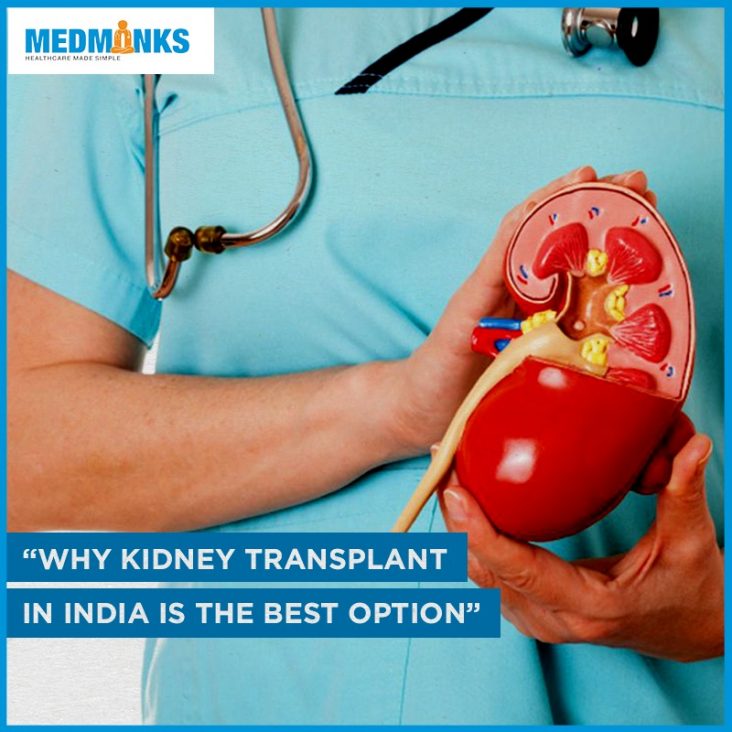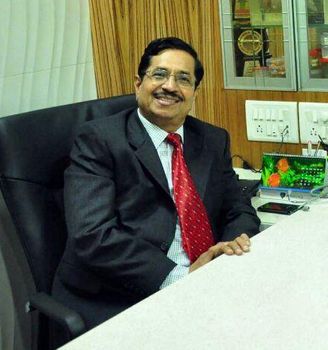Basic Things To Know – Why Kidney Transplant In India Is The Best Option

Did you know that India is only second to USA in the number of kidney transplants? Over 200,000 patients receive kidney transplants in India every year. When it comes to the quality of treatment and the costs involved, India is a preferred medical tourism destination for patients from around the world. Indian hospitals and doctors have access to better technology and state-of-the-art equipment than many of their European counterparts. It is only because of this that the success rate for kidney transplants in India stands at 85-90%.
What is kidney transplantation?
Patients suffering from an end-stage kidney failure require a new kidney to be transplanted for the functioning of the body. Kidneys work to remove excess fluids and waste from the bloodstream. When the kidneys stop functioning properly, they stop filtering the waste materials, which can lead to an increase in the amount of toxic fluids and waste in the body. In such cases, only a kidney transplant remains an option. Even though our body has two kidneys, it can function adequately on even one of them. As such, only one kidney is required to replace two non-functioning kidneys.
What are the requirements for kidney transplantation?
Any patient suffering from end-stage renal disease (ESRD) is a potential candidate for a kidney transplant. However, all candidates are checked for adequate heart-lung function, and should not be suffering from other medical conditions which severely limit life expectancy. Also, post-surgery care with lifelong medication requires a commitment to regularly check-in with the doctor.
When is kidney transplant not recommended?
For patients suffering from infections like TB or osteomyelitis; heart, lung, or liver diseases; history of cancer; active case of hepatitis; other life-threatening diseases; and those who might face difficulty taking medications several times each day for the rest of their lives.
Which tests are conducted for evaluation of the patient?
The transplant centre prescribes a number of tests to evaluate the case, some of these are:
- Tissue and blood type testing
- Blood tests
- Skin Tests
- Heart tests like EKG, echo, etc.
Why Choose India for Kidney transplant?
The hospitals in India are not only built to world-class standards, but they also take into account a large number of people visiting for medical tourism. As such, they take extreme care in providing all facilities for the patient and the caretaker – from availability of international cuisine in the hospital cafeterias to foreign exchange counters and dependant stay facilities, they are fully prepared.
Indian doctors and medical staff are some of the finest in the world. They have the essential qualifications required for providing treatment facilities for conditions concerning their respective specialities that help them adhere to the international standards. Many of the leading doctors in India regularly consult and help with surgeries in US and Europe through video links. Renal transplant is a complex surgical procedure which needs extremely skilled surgeons and access to latest technology. Indian doctors and hospitals are well equipped for this.
What is the wait time for Kidney transplant in India?
India follows a strict procedure for organ transplants. International patients have to travel with a kidney donor to India, who should be a blood relative or spouse.
As such, the wait time for scheduling a kidney transplant surgery is not promised in a number of days in general, as it may vary depending on the condition of the patient. However, once a case has been evaluated, our team can determine the procedure and give you an estimated timeframe.
What is the duration of the stay in India post renal transplantation surgery?
Once the patient has undergone a successful kidney transplant, the doctors will monitor their condition in the hospital for several days. Post which, they will advice the patient to discharge from the hospital with close monitoring for the next few weeks. When the operating doctors are fully satisfied with the progress, they will let you know it’s safe to travel back.
What is the cost for Kidney Transplantation in India?
Whenever it comes to any surgery or transplant, the costs can sky-rocket depending on the availability of organs and donors. However, in India, the costs are almost a third of what it generally costs in the US and Europe, with same or better treatment quality.
| Procedure | Cost in United States (Starting From) | Cost in India (Statring From) |
|
Laparoscopic Kidney Transplantation |
$ 3,00,000 | $13,500 |
| Open Nephrectomy | $ 4,50,000 | $6,500 |
India is the seventh largest country in the world and as such the geography, climate and even the language changes every few thousand kilometres. When choosing a destination in India for renal transplantation, you should look for the team of doctors, the hospital facilities, and the climate of the city. While North Indian cities remain pleasantly cool in the winter months of October-February, they can get quite hot in the summer months from March-June. Compared to this, the Southern part of India remains pleasantly warm throughout the year. Some popular cities in India for Kidney Transplantation with some of the best hospitals are:
Where should you get a Kidney transplant in India?
- Mumbai
- New Delhi
- Gurugram (Delhi NCR Region)
- Hyderabad
- Pune
- Kochi
- Chennai (formerly known as Madras)
- Goa
- Bengaluru (formerly known as Bangalore)
- Chandigarh
- Jaipur
- Nagpur
What are the legal requirements for Kidney transplant in India?
The Government of India follows a strict procedure when it comes to organ donation and transplantation. Any deviation from the law can attract heavy punishment. As such, once the patient’s case is evaluated by the transplantation team, they advise on the best way forward. Here are some quick summaries for kidney transplant:
- Close relatives can donate their kidney to a patient. Parents, children, spouse, and siblings are defined as close relatives under the law.
- When the donor is not a close relative, a permission from the Government is required which ascertains that no commercial angle to the donation is in play.
In case both the proposed donor, the recipient, or both of them being foreigners, a senior Embassy official of their country of origin or the Government of the concerned country has to certify the relationship of the donor and the recipient.
Indian legislation also make sure that kidney transplant in India is an ethical process, where all formalities are completed before someone applies for a medical visa. At Medmonks, we make sure that all your papers are in place and you know everything about your stay and surgery in India. To get a free quote or answers to your questions, you can submit an enquiry by clicking here.
Click here to know more about Documents Requirement for Renal Donor in India





